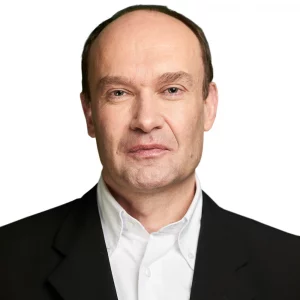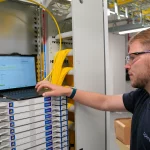Home » UK ISP News Archive » Daily Archives: November 17, 2025 (7 Posts Found)
Sponsored Links
You are viewing a November 17, 2025 news and article archive where older items are stored for readers to access and view. This is done to keep the systems running smoothly and prevents the front page from becoming too cluttered.
Search ISP News
Search ISP Listings
Search ISP Reviews
ISP News Archives for November 17, 2025
17th Nov 2025 (23 Comments)
Perhaps inevitably, TalkTalk has today become the latest internet and phone provider to increase the customer cost impact of their existing mid-contract pricing policy, which will be introduced from 16th November 2025. But the price increase itself won’t hit until April 2026.
17th Nov 2025 (7 Comments)
The cross-party Home-based Working Committee (Lords Select Committee) has published its report on remote and hybrid working in the UK, which among other things finds that the government should “increase long-term investment in digital infrastructure, particularly broadband” in order to properly support such working.
17th Nov 2025 (9 Comments)
Infracapital-backed alternative broadband ISP Fibrus, which is building a full fibre network across parts of Cumbria (England) and Northern Ireland, has published a new report that outlines three predictions for how the UK’s rural areas might look in 2050 and highlights the “extraordinary potential” of such communities as engines of growth.
Advertisement
17th Nov 2025 (1 Comment)
Customers of broadband ISP Virgin Media (O2), specifically those who also take a Pay TV service via one of their TV 360, Stream or v6 box platforms, have today been informed that they’ve added video-on-demand (VoD) capabilities, “at no extra cost“, to at least some of their growing line up of FAST channels.
17th Nov 2025 (6 Comments)
The Great Western Railway (GWR), which operates most train services across the Great Western Main Line (GWML) – the rail line in England that runs between London Paddington and Bristol Temple Meads, has joined with Peninsula Transport, Network Rail and Motion Applied to pilot faster on-board broadband (WiFi) using “technology from the world of Formula 1“.
17th Nov 2025 (2 Comments)
The UK telecoms regulator, Ofcom, has today opened a “narrow consultation” that proposes to amend their leased line access (LLA) market analysis for the ongoing Telecoms Access Review 2026 (TAR) to reflect a “greater potential impact” from Openreach’s Physical Infrastructure Access (PIA) product (this allows rivals to run new fibre via existing cable ducts and poles).
Advertisement
17th Nov 2025 (9 Comments)
The Head of Standards at Nokia Technologies, Peter Merz, has today told ISPreview – as part of our latest interview – that they’re conscious of wanting to avoid what mobile operators call “G-fatigue” (over-hyping) with their development of future 6G mobile (broadband) technology, which he says will be more about “intelligence and efficiency” than raw data throughput.
Cheapest Big ISPs for 100Mbps+
Community Fibre £19.00
100Mbps (100Mbps up)
Vodafone £22.00
150Mbps (27 - 150Mbps up)
Virgin Media £23.99
264Mbps (25Mbps up)
Youfibre £23.99
150Mbps (150Mbps up)
Latest UK ISP News
Promotion
The Top 15 Category Tags
- FTTP (6820)
- BT (3888)
- Politics (3083)
- Business (2774)
- Openreach (2670)
- Building Digital UK (2518)
- Mobile Broadband (2482)
- FTTC (2144)
- Statistics (2136)
- 4G (2100)
- Virgin Media (2031)
- Ofcom Regulation (1783)
- 5G (1740)
- Fibre Optic (1605)
- Wireless Internet (1597)
New Forum Topics
By: returnofthe3G
By: The Wee Bear
By: simpuse
By: dabigm
By: LordVerga
Promotion
Helpful ISP Guides and Tips
Latest Interviews
Sponsored
Copyright © 1999 to Present - ISPreview.co.uk - All Rights Reserved - Terms , Privacy and Cookie Policy , Links , Website Rules , Contact











































